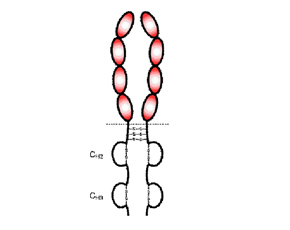
Increasing the dose of infliximab and, in some cases, adalimumab can result in improved efficacy in RA patients with inadequate responses to initial dosing. However, whether increasing the dose of etanercept can also result in clinical improvement has not been studied. Here, Weinblatt et al (Arthritis Rheum 2008; 58: 1921) present results from a randomized clinical trial comparing etanercept 50 mg per week to etanercept 100 mg per week in RA patients who had failed to respond to etanercept 50 mg per week in combination with methotrexate.
The Methods and Results of this trial as published are identical to those presented at the 2007 American College of Rheumatology Annual Scientific Meeting.
Editorial Comment
Although with the same molecular targets, there are differences in the mechanism of action of the various TNF inhibitors. These data suggest that there is indeed a ceiling effect of etanercept for efficacy in RA, but perhaps not for safety—as these data suggest, but do not prove, that the higher dose may be associated with an increased risk of serious adverse events. Due to the relatively small sample size of the study, the small increase in efficacy associated with the higher dose of etanercept was not detected as statistically significant. However, the small difference cannot be considered clinically meaningful, and the use of etanercept at this dose cannot be encouraged based on these small differences. The ceiling effect for efficacy may not be exclusive to decoy receptors like etanercept, for although adalimumab, a monoclonal antibody that is mechanistically distinct from etanercept, is licensed for use weekly; whether increasing the dose in this manner is truly associated with efficacy benefit has recently been questioned.

